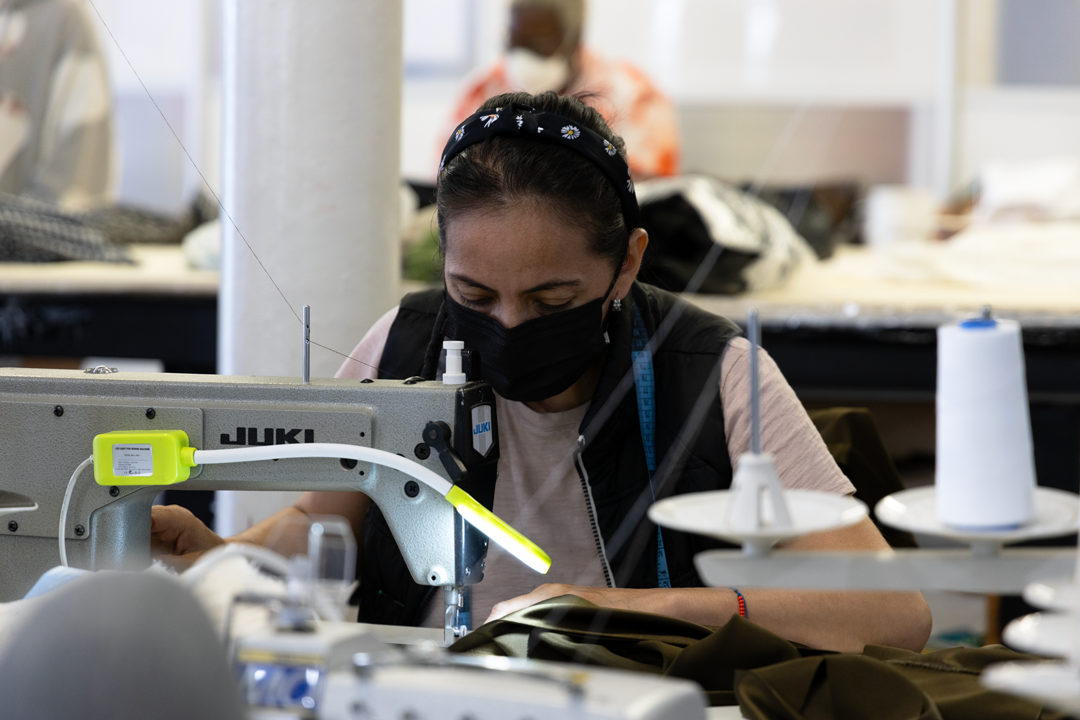Celebrated by labor activists long before it became institutionalized as a federal holiday, Labor Day acknowledges the many contributions workers have made to America’s prosperity and well-being. Unions organized the first Labor Day parade on September 5, 1882, in New York City.
For generations, the American labor movement has worked for the worker, addressing unfair labor practices and prioritizing safe working conditions with achievements like the eight-hour workday and minimum wage. Support the rights and continued well-being of all workers with a gift to the following nonprofits.
DEFENDING WORKERS’ RIGHTS
New York has led the way in defending workers’ rights, yet thousands of residents suffer from poor working conditions and unfair wages. This is especially true for independent contract and service workers, many of whom are not afforded minimum wage or basic employee protections. These nonprofits advocate for workers to receive the workplace protections and compensation they deserve.
A Better Balance helps the city’s workers–including those who are Latinx, immigrants, and undocumented–understand their rights so they can manage the demands of work and family. It addresses discrimination against pregnant workers and caregivers, while advancing paid sick time, paid family and medical leave, and accessible, quality child care and eldercare in all workplaces.
Rural & Migrant Ministry organizes farmworker communities in and on Long Island, the Hudson Valley, the Catskills, and western New York. It successfully advocated for legislation providing farmworkers with drinking water and sanitation facilities, a day of rest, overtime pay, disability insurance, and the right to bargain. It also helped establish the first certified union for farmworkers in New York State.
Worker Justice Center of New York pursues justice for agricultural and low-wage workers in Westchester and the Hudson Valley. It provides legal services, advocates for workers’ rights, and investigates and combats labor trafficking.
Worker’s Justice Project organizes, advocates, and provides legal services for low-income, predominantly Latinx workers. Its Los Deliveristas Unidos advocacy campaign recently pushed the city to establish the nation’s first minimum wage policy for delivery workers.
PATHS TO EMPLOYMENT
Everyone deserves the chance to work and grow. Yet many struggle to overcome structural obstacles that hinder their access to employment, including immigration status, health disparities, substance use history, and involvement with the justice system. These agencies champion the journeys of jobseekers with barriers and provide the support that can help them succeed.
Center for Employment Opportunities is the largest provider of employment services for formerly incarcerated individuals in the country. Research has shown that having a job is one of the most important factors for helping people reintegrate into their communities. The Center provides people with the skills training, financial aid, job placement services, and more to help them obtain employment in today’s competitive market.
At the Community Resource Center in Westchester, immigrants and low-income families can access a range of classes and resources to help jobseekers overcome barriers to continuous employment and attain the skills and self-confidence to secure work and a living wage.
Hope Program helps New Yorkers who have had tough lives—particularly jobseekers with histories of substance use, homelessness, or incarceration—develop work skills. Its programs combine high school equivalency preparation; job training in business services, construction, and clean energy; and access to mental health treatment and services. Graduates of its programs are lifelong clients and often return to continue their education and training.
Upwardly Global helps underemployed immigrants who have degrees and professional work experience in their home countries obtain jobs and credentials that enable them to restart their careers and succeed in the workplace. It provides free online English language and skills training programs, scholarships, job placement, and coaches to help clients ace interviews.
CREATING INCLUSIVE ECONOMIES
The economic effects of the pandemic continue to reverberate throughout our region, especially for our most vulnerable communities. True recovery will mean lifting up all neighborhoods—and especially those communities most affected not only by the pandemic, but by longstanding socioeconomic and racial inequities. The nonprofits below help ensure that our neighborhoods are vibrant, inclusive, and well-resourced for families, individuals, businesses, and community organizations alike.
Choice for All ensures that youth and families on Long Island can thrive economically and socially. With Trust support, it has established financial empowerment centers that address debt, credit, savings, asset building, and job training to advance financial justice for Black Long Islanders, reduce the wealth gap, and build a more inclusive economy.
Queens Economic Development Corporation promotes the borough’s economic and small business development—including its growing food service sector—through a commercial kitchen rental program, job training, support for women and entrepreneurs of color, and its project Queens Together, which helped immigrant-owned food businesses provide 275,000 people with emergency food during the pandemic.
Based in West Harlem, SoHarlem offers space, networking opportunities, finance, technology, and marketing assistance to local artisans and creative entrepreneurs, contributing to a thriving local economy, the preservation of cultural traditions, and a vibrant future for its network of small businesses owned mostly by people of color.
This list is not exhaustive. There are many incredible nonprofits helping to make our city a better place for all; we are highlighting a few that may not be on your radar, but please reach out to our philanthropic advising department at info@nyct-cfi.org if you would like recommendations tailored to your charitable goals.
